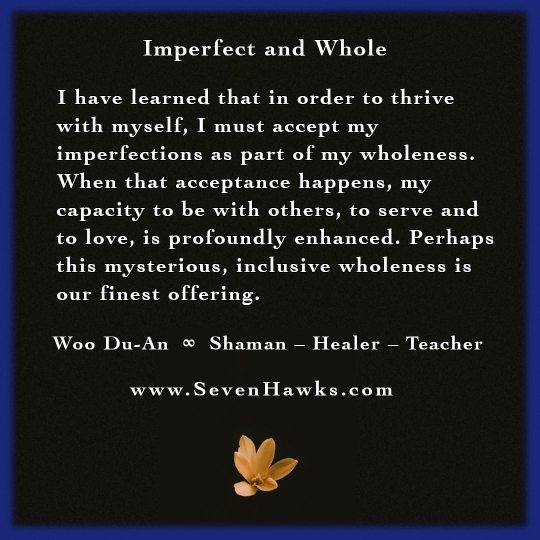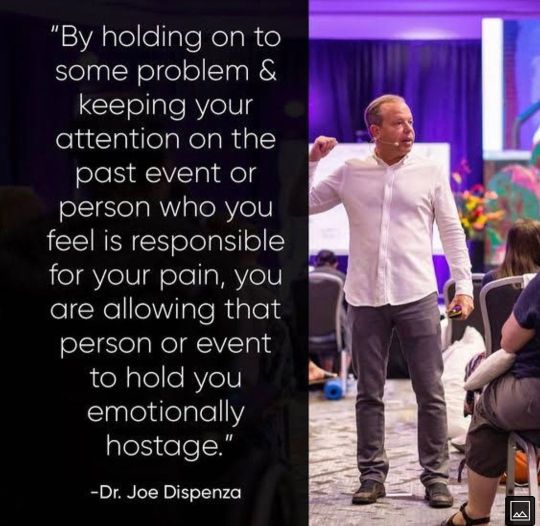#forgivenessheals
Text
The Path to Self-Compassion: Healing Guilt through Spirituality

Introduction:
In the journey towards self-compassion, spirituality serves as a guiding light, illuminating the path towards healing from guilt and embracing unconditional love for oneself. This article delves into the profound connection between spirituality and self-compassion, exploring how spiritual practices can facilitate the process of healing guilt and nurturing a compassionate relationship with oneself. Through insightful reflections and practical tips rooted in spiritual wisdom, we embark on a transformative journey towards self-compassion and liberation from the shackles of guilt.
Understanding the Interplay of Spirituality and Self-Compassion:
At the heart of spirituality lies the recognition of our interconnectedness with all beings and the divine essence within. Self-compassion, rooted in this understanding, involves treating oneself with the same kindness, understanding, and forgiveness that we extend to others. Spirituality provides a framework for embracing self-compassion by acknowledging our inherent worthiness as divine beings, irrespective of our perceived flaws or mistakes. It invites us to surrender our guilt to the divine and embrace a deeper sense of acceptance and love for ourselves.
Healing Guilt through Spiritual Practices:
Forgiveness: Central to many spiritual traditions is the practice of forgiveness – both of others and oneself. By acknowledging our humanity and inherent worthiness, we release ourselves from the burden of guilt and open our hearts to receive divine grace and compassion.
Mindfulness: Mindfulness, a cornerstone of spiritual practice, invites us to cultivate present-moment awareness and non-judgmental acceptance of our thoughts, emotions, and experiences. Through mindfulness, we observe our guilt with curiosity and compassion, allowing it to dissolve in the light of awareness.
Surrender: Surrendering to a higher power or divine wisdom is a powerful antidote to guilt. By relinquishing our need for control and trusting in the divine plan, we release the illusion of guilt and embrace a sense of peace and acceptance.
Self-Reflection: Spiritual practices such as journaling, meditation, or contemplative prayer provide opportunities for self-reflection and introspection. By exploring the root causes of our guilt with compassion and curiosity, we gain insight into our patterns of thought and behavior, paving the way for healing and transformation.
Practical Tips for Cultivating Self-Compassion:
Practice Loving-Kindness: Begin each day with a loving-kindness meditation, extending wishes of happiness, peace, and well-being to yourself and others.
Offer Yourself Grace: When guilt arises, offer yourself grace and forgiveness, recognizing that you are doing the best you can with the resources and knowledge you have.
Set Boundaries: Honor your needs and set boundaries to protect your well-being, recognizing that self-care is an essential aspect of self-compassion.
Connect with Nature: Spend time in nature, immersing yourself in its beauty and wisdom, and allowing its healing energies to soothe your soul and uplift your spirit.
Seek Support: Reach out to supportive friends, family members, or spiritual mentors who can offer guidance, compassion, and encouragement on your journey towards self-compassion.
Conclusion:
In conclusion, the path to self-compassion is a sacred journey of healing, growth, and spiritual awakening. By embracing spiritual practices rooted in love, forgiveness, mindfulness, and surrender, we can heal from guilt and cultivate a compassionate relationship with ourselves. Through self-reflection and practical tips informed by spiritual wisdom, we embark on a transformative journey towards wholeness and liberation, honouring our divine essence and embracing the boundless love that resides within.
#SelfCompassion#SpiritualHealing#GuiltFreeLiving#DivineGrace#SelfLoveJourney#SpiritualGrowth#MindfulnessPractice#HealingJourney#EmbraceYourDivinity#ForgivenessHeals#InnerPeace#SoulfulTransformation#CompassionateSelfCare#SpiritualAwakening#ReleaseGuilt
2 notes
·
View notes
Text
The Transformative Power of Words
Our words possess an incredible power that can shape perceptions, influence emotions, and impact relationships. The Bible often emphasizes the importance of our speech, cautioning against gossip, slander, and false accusations. In Proverbs 18:21, it states, "The tongue has the power of life and death, and those who love it will eat its fruit." This verse underscores the profound impact our words can have, both for good and for harm.
When someone close to us spreads false accusations or gossip, it can be deeply hurtful and challenging to comprehend. It's a betrayal of trust and can leave us feeling wounded and misunderstood. In such moments, it's essential to remember that often, those who engage in such behavior may not fully grasp the gravity of their actions or the harm they cause. They might be driven by their own insecurities, misunderstandings, or misguided intentions.
Navigating through such situations requires strength and grace. It's crucial to resist the temptation to retaliate or engage in similar behavior. Instead, choosing to respond with patience, forgiveness, and understanding can help break the cycle of negativity. Ephesians 4:29 advises, "Do not let any unwholesome talk come out of your mouths, but only what is helpful for building others up according to their needs, that it may benefit those who listen." This verse encourages us to use our words to uplift and encourage rather than tear down.
While it may be challenging, finding compassion for those who have wronged us can be a transformative act. Recognizing that their actions stem from their own struggles and shortcomings can help cultivate empathy and foster healing, both for ourselves and for them.
Ultimately, being mindful of the power of our words and the impact they have on others is essential. By speaking with integrity, kindness, and wisdom, we can contribute to the creation of a more compassionate and understanding world, where our words serve to uplift and unite rather than divide and harm.
#PowerOfWords#SpeakWithGrace#ChooseKindness#WordsMatter#IntegrityInSpeech#ForgivenessHeals#CompassionateCommunication#BuildingUpOthers#MindfulSpeech#HealingThroughWords
0 notes
Text
People are often told that when they’re wronged, they must forgive and hold no grudge over the person who hurt them. Regardless of how one-sided it may seem, this advice provides ease to both parties. One doesn’t have to bear the guilt permanently, especially when the mistake wasn’t intentional. And the other gets released from the bitterness and burden in their hearts...
0 notes
Text
I Am Saved: A Journey of Spiritual Redemption
Shaina Tranquilino
March 16, 2024

Many individuals find themselves navigating through the complexities of existence, grappling with questions of purpose, meaning, and their place in the universe. For those who have experienced a profound spiritual awakening, the phrase "I am saved" takes on a transformative significance. In this blog post, we explore the concept of salvation from a spiritual perspective, delving into the personal journeys that lead individuals to utter these words with a sense of profound gratitude and inner peace.
The Quest for Salvation: The quest for salvation often begins with an internal longing for something beyond the material realm—a search for purpose and connection that transcends the mundane aspects of daily life. Individuals may embark on spiritual journeys, exploring various belief systems, practices, and traditions in a quest to fill the void within.
Encountering Higher Realities: Many spiritual seekers recount moments of divine revelation or encounters with higher realities that serve as catalysts for their spiritual awakening. These experiences can manifest in various forms, such as meditation, prayer, or moments of profound insight, where the veil between the physical and spiritual worlds momentarily lifts.
Redemption and Forgiveness: Central to the concept of salvation is the idea of redemption and forgiveness. For many, the realization that they are saved comes hand in hand with a deep understanding of their own flaws and mistakes. The process of acknowledging these shortcomings, seeking forgiveness, and extending the same compassion to oneself can be a transformative journey.
Connection with the Divine: "I am saved" often implies a profound connection with the divine—a recognition that there is a force greater than oneself that guides and sustains life. This connection can be experienced through prayer, meditation, or a deep sense of communion with the universe. The feeling of being held and supported by a higher power can bring immense comfort and peace.
Inner Transformation: Salvation is not just an external event but a profound inner transformation. As individuals navigate their spiritual paths, they often undergo a process of shedding old beliefs, ego-driven patterns, and attachments that no longer serve their higher selves. This inner purification lays the foundation for a renewed sense of purpose and alignment with a higher truth.
Living in Alignment: The saved individual often finds themselves living in greater alignment with their authentic selves and the values of compassion, love, and service. This alignment transcends personal desires and extends to a commitment to contribute positively to the well-being of others and the world at large.
The phrase "I am saved" encapsulates a journey of self-discovery, redemption, and alignment with a higher purpose. It is a declaration that goes beyond religious boundaries, encompassing the universal quest for meaning and connection. In embracing the spiritual perspective of salvation, individuals find solace, purpose, and a profound sense of inner peace that permeates every aspect of their lives.
#SpiritualAwakening#SavedByGrace#JourneyToSalvation#DivineConnection#InnerTransformation#RedemptionStory#SpiritualJourney#FindingPurpose#HigherReality#ForgivenessHeals#SacredMoments#LivingInAlignment#SavedAndGrateful#Transcendence#PathToPeace#AwakenedSoul#UniversalTruths#CompassionateLiving#SeekingTheDivine#HolisticHealing#SoulfulLiving#MindBodySpirit#EternalGrace#SelfDiscovery#EnlightenmentJourney#FaithRenewed#SpiritualGrowth#GratitudeJourney#BlessedAndTransformed#HarmonyWithin
0 notes
Text
Embracing Love: A Journey of Loving God, Self, and Others

Introduction:
In a world filled with chaos and uncertainty, the concept of love remains a steadfast beacon of hope and positivity. As a Momma Warrior, you understand the power of love in nurturing your family and guiding them through life's challenges. But beyond familial love, there's a deeper, more profound love that transcends all boundaries - the love for God, self, and others. This journey of love is not always easy, especially when faced with adversity, injustice, or mistreatment. Yet, it is during these moments of trial that the true strength and transformative power of love are revealed. It's about embracing love not just when it's convenient or comfortable, but especially when it's challenging. In this post, we'll explore the transformative journey of embracing love in its purest form, even in the face of adversity, and how it can lead to a life of fulfillment, purpose, and profound impact.
Section 1: Loving God
Loving God is the cornerstone of many spiritual practices. It involves cultivating a deep connection with the divine and surrendering to the higher power's wisdom and guidance. Here are some ways to deepen your love for God:
Prayer and Meditation: Set aside time each day to commune with God through prayer and meditation. This allows you to quiet the mind and open your heart to divine love and guidance.
Study of Sacred Texts: Immerse yourself in the teachings of your faith tradition's sacred texts. Whether it's the Bible, the Quran, the Bhagavad Gita, or any other spiritual text, studying these scriptures can deepen your understanding of God's love and wisdom.
Service to Others: Show your love for God by serving others selflessly. Volunteer at local charities, help those in need, and spread kindness wherever you go. By serving others, you're expressing your love for God through your actions.
Gratitude Practice: Cultivate an attitude of gratitude towards God for the blessings in your life. Take time each day to reflect on the things you're grateful for, whether it's your family, your health, or the beauty of nature.
Action: Begin your journey of loving God by incorporating daily prayer, meditation, and gratitude practice into your routine. Set aside a few minutes each day to connect with the divine and express your gratitude for the blessings in your life.
Section 2: Loving Self
Self-love is the foundation of emotional well-being and personal growth. It involves accepting yourself unconditionally, flaws and all, and treating yourself with kindness and compassion. Here are some ways to cultivate self-love:
Self-Care Routine: Prioritize self-care by taking care of your physical, emotional, and spiritual needs. This can include exercise, healthy eating, adequate sleep, and activities that bring you joy and relaxation.
Positive Affirmations: Practice positive self-talk by affirming your worth and value. Repeat affirmations such as "I am worthy of love and happiness" or "I embrace my unique gifts and talents" to boost your self-esteem and confidence.
Set Boundaries: Learn to set healthy boundaries in your relationships and prioritize your needs and well-being. Saying no to things that drain your energy and saying yes to activities that nourish your soul is an act of self-love.
Forgiveness: Release resentment and bitterness towards yourself for past mistakes or shortcomings. Practice self-forgiveness and let go of self-criticism, embracing a mindset of compassion and acceptance.
Action: Start your self-love journey by creating a self-care routine that prioritizes your physical, emotional, and spiritual well-being. Set aside time each day for activities that bring you joy and nourishment, whether it's taking a bubble bath, practicing yoga, or journaling your thoughts and feelings.
Section 3: Loving Others
Loving others is an expression of our interconnectedness and shared humanity. It involves seeing the divine spark in every person and treating them with kindness, compassion, and respect. Here's how you can cultivate love for others:
Practice Empathy: Put yourself in others' shoes and seek to understand their thoughts, feelings, and experiences. Cultivate empathy by listening actively, validating their emotions, and offering support without judgment.
Acts of Kindness: Spread love and kindness wherever you go by performing random acts of kindness. Whether it's complimenting a stranger, helping a neighbor in need, or volunteering at a local charity, small gestures can make a big difference in someone's day.
Forgiveness: Release resentment and anger towards those who have wronged you and choose to forgive them for their mistakes. Forgiveness is a powerful act of love that frees you from the burden of resentment and allows you to move forward with compassion and grace.
Cultivate Connection: Build meaningful connections with others by fostering open, honest, and authentic relationships. Share your joys and sorrows, celebrate each other's successes, and offer support during difficult times.
Action: Take the first step towards loving others by performing a random act of kindness today. Whether it's smiling at a stranger, holding the door open for someone, or sending a thoughtful message to a friend, spreading love and kindness wherever you go.
Are you ready to embark on a journey of love and transformation? Join the Momma Warrior community today and start your journey towards loving God, self, and others. Subscribe to our newsletter for weekly inspiration, practical tips, and exclusive resources to help you cultivate love in your life. Together, let's spread love and positivity to create a world filled with kindness and compassion. Click here to join us on this incredible journey!
Conclusion:
Embracing love for God, self, and others is a transformative journey that leads to a life of fulfillment, purpose, and joy. By cultivating a deep connection with the divine, practicing self-love, and spreading kindness and compassion to others, you can create a ripple effect of love that touches hearts and transforms lives. Act today to begin your journey of love and continue practicing these principles throughout your life to experience profound results. Remember, love is the greatest force in the universe, and when you embrace it fully, miracles happen.
FAQs (Frequently Asked Questions):
Q: How can I cultivate love for God in my daily life?
A: Cultivating love for God starts with creating a sacred space for prayer and meditation. Set aside time each day to connect with the divine through prayer, meditation, and reflection. Study sacred texts and engage in acts of service to deepen your relationship with God.
Q: What are some practical ways to practice self-love?
A: Practicing self-love involves prioritizing your well-being and treating yourself with kindness and compassion. Start by establishing a self-care routine that includes activities you enjoy, such as exercise, meditation, or spending time in nature. Practice positive affirmations and set boundaries in your relationships to honor your needs and values.
Q: How can I show love and kindness to others, especially during challenging times?
A: Showing love and kindness to others begins with practicing empathy and compassion. Listen actively to others' needs and offer support without judgment. Perform random acts of kindness, such as volunteering, helping a neighbor in need, or simply offering a smile to brighten someone's day. Remember that small gestures of kindness can make a big difference in someone's life.
Q: What if I struggle with forgiving others who have hurt me?
A: Forgiveness is a process that takes time and patience. Start by acknowledging your feelings and allowing yourself to grieve and heal. Practice self-compassion and remind yourself that forgiveness is a gift you give yourself, freeing you from the burden of resentment and anger. Seek support from loved ones, therapists, or spiritual advisors if needed, as you navigate the journey of forgiveness.
Q: How can I stay committed to the practice of love throughout my life?
A: Staying committed to the practice of love requires intention, discipline, and self-awareness. Surround yourself with a supportive community of like-minded individuals who share your values and aspirations. Set realistic goals and create accountability systems to track your progress. Remember that love is a lifelong journey, and every step you take towards cultivating love in your life brings you closer to a more fulfilling and meaningful existence.
Q: What if I'm treated wrongly by someone, how can I still show love?
A: Responding with love when faced with mistreatment can be challenging, but it's also an opportunity for growth and transformation. First, it's essential to acknowledge your feelings and validate your experience of hurt or anger. Then, practice empathy by trying to understand the other person's perspective and what may have led them to act in hurtful ways.
Choose forgiveness as a way to release yourself from the burden of resentment and anger. Remember that forgiveness doesn't mean condoning the other person's actions but rather freeing yourself from the negative emotions associated with the situation.
Respond with kindness and compassion, even in the face of adversity. This could involve setting healthy boundaries to protect yourself while still treating the other person with respect and dignity. Showing love in difficult situations can be a profound act of strength and grace, ultimately leading to healing and reconciliation.
By choosing to respond with love, you not only uplift yourself but also contribute to creating a more compassionate and harmonious world.
#MommaWarrior#LoveAndTransformation#EmbracingLove#SpiritualJourney#SelfLove#GodsLove#CompassionInAction#SpreadKindness#ForgivenessHeals#ChooseLove#TransformativeJourney#LoveConquersAll
0 notes
Text
Embracing Forgiveness and Letting Go
Hello, wonderful followers! Happy #MotivationalMonday! Today, let's talk about embracing forgiveness and letting go. 🕊️
Scripture of the Day: Ephesians 4:31-32 (NIV) - "Get rid of all bitterness, rage, and anger, brawling, and slander, along with every form of malice. Be kind and compassionate to one another, forgiving each other, just as in Christ God forgave you."
Forgiveness is a powerful gift we can offer ourselves and others. Release the burden of grudges and hurt, and choose to forgive as Christ forgave us. Letting go of resentment frees your heart to experience peace and allows you to extend love and compassion to those around you. ��
0 notes
Photo

Forgiveness is a powerful act that can have significant positive effects on both the person forgiving and the person being forgiven. Here are some ways in which the power of forgiveness can be beneficial: Healing: Forgiveness can help heal emotional wounds and promote physical health. Holding onto anger and resentment can lead to stress and negative health outcomes such as high blood pressure, insomnia, and anxiety. Forgiveness can help reduce stress and promote feelings of inner peace and well-being. Personal Growth: Forgiveness can help you grow as a person by allowing you to let go of negative emotions and move forward in life. When you forgive someone, you are taking control of your own life and choosing to focus on positive feelings and experiences. Improved Relationships: Forgiveness can improve relationships by promoting empathy, understanding, and compassion. When you forgive someone, you are showing that you value the relationship and are willing to work towards making it better. This can lead to stronger, more fulfilling relationships with the people in your life. Spiritual Benefits: Forgiveness can have spiritual benefits as well, as many religions and belief systems encourage forgiveness as a means of achieving inner peace and spiritual growth. Breaking the Cycle: Forgiveness can break the cycle of negativity and revenge. When someone wrongs us, our first instinct may be to seek revenge or hold onto anger and resentment. But forgiving the person who wronged us can help break this cycle and promote a more positive and peaceful world. Overall, forgiveness can be a powerful tool for promoting healing, personal growth, and positive relationships. While it can be difficult to forgive someone who has wronged us, the benefits are worth the effort. Like ❤️ Comment 💬 Tag 👍🏻 Save 💎 Share 🌍 Follow @highvibes365 💯 #ForgiveAndForget #LetGoAndForgive #ForgivenessIsKey #ForgivenessHeals #LoveAndForgiveness #ForgiveYourself #ForgiveOthers #ForgivenessMatters #ForgivenessIsFreedom #ThePowerOfForgiveness #ForgivenessBringsPeace #ForgivenessIsLove #ForgivenessIsStrength #ForgivenessIsTheWay #ForgivenessIsPower #ForgivenessIsHealing #ForgiveToLive https://www.instagram.com/p/CqaA9-YMlyn/?igshid=NGJjMDIxMWI=
#forgiveandforget#letgoandforgive#forgivenessiskey#forgivenessheals#loveandforgiveness#forgiveyourself#forgiveothers#forgivenessmatters#forgivenessisfreedom#thepowerofforgiveness#forgivenessbringspeace#forgivenessislove#forgivenessisstrength#forgivenessistheway#forgivenessispower#forgivenessishealing#forgivetolive
0 notes
Photo

Toxic feeling manifests into physical toxicity. Nothing is worth holding on to anger, disappointments or sadness. 💕 Heal yourself by letting go with true forgiveness that leaves you basking in the freedom of ☮️ peace. #Forgiveness #forgivenessheals #manifestingtips #ManifestingYourHealth #ManifestationCoach #CelebrityLifeCoach #LifeCoachingTips #LOA #LawOfAttraction #AngerManagement #MentalDisease #ProclaimPeace #GetYourLifeNow #TheAOMsystem #SterlingMire https://www.instagram.com/p/CoGYBlvuOwa/?igshid=NGJjMDIxMWI=
#forgiveness#forgivenessheals#manifestingtips#manifestingyourhealth#manifestationcoach#celebritylifecoach#lifecoachingtips#loa#lawofattraction#angermanagement#mentaldisease#proclaimpeace#getyourlifenow#theaomsystem#sterlingmire
1 note
·
View note
Photo

Imperfect and Whole! By Woo Du-An. Shaman/Healer-Teacher in Basalt. For information and appointments: www.SevenHawks.com #receiving #receiving-love #peace #receiving #grace #miracles #forgivenessheals #selfforgiveness #meditation #mindfulness #forgivenessandlove https://www.instagram.com/p/CmZUfLvuhpY/?igshid=NGJjMDIxMWI=
#receiving#peace#grace#miracles#forgivenessheals#selfforgiveness#meditation#mindfulness#forgivenessandlove
0 notes
Photo

Forgiveness & Choosing JOY over Everything Else! ❤️🙏🏼🥰But I think this calls for me to unplug for a while… #ChooseJOY#GodIsInControl #ForgivenessHeals #PeaceGraceMercyAlways #CantTakeMyJOY https://www.instagram.com/p/CmInJqHuipw/?igshid=NGJjMDIxMWI=
0 notes
Text
Embracing Divine Grace: Letting Go of Overwork and Guilt

In our modern society, the glorification of busyness often leads us to overwork ourselves, leaving little room for rest, reflection, and spiritual nourishment. However, embracing divine grace involves recognizing our inherent worthiness, letting go of the need to constantly strive, and allowing ourselves to receive the gifts of rest, forgiveness, and spiritual renewal. In this exploration of "Embracing Divine Grace: Letting Go of Overwork and Guilt," we delve into the concept's depth and provide practical tools for integrating it into our daily lives.
Understanding Divine Grace:
Divine grace is a concept found in many spiritual traditions, signifying the unearned and undeserved favour bestowed upon us by a higher power. It is a manifestation of unconditional love, compassion, and forgiveness, freely given to all who are willing to receive it. Embracing divine grace involves letting go of the belief that our worthiness is contingent upon our achievements or actions and instead acknowledging our inherent value as divine beings.
Releasing the Burden of Overwork: Overwork is often driven by societal expectations, fear of failure, or the need for external validation. However, embracing divine grace requires us to release the burden of overwork and recognize that our value is not determined by our productivity. It's about prioritizing self-care, setting boundaries, and honouring our physical, emotional, and spiritual needs.
Cultivating Self-Compassion: Guilt often arises when we fall short of our own or others' expectations. However, divine grace invites us to cultivate self-compassion and extend forgiveness to ourselves for our perceived shortcomings. It's about recognizing our humanity, embracing our imperfections, and choosing kindness and empathy over self-criticism and judgment.
Opening to Receive: Embracing divine grace involves opening ourselves to receive the blessings and gifts that life has to offer. This requires vulnerability, humility, and a willingness to surrender control. By letting go of the need to constantly strive and achieve, we create space for divine grace to flow into our lives, bringing healing, abundance, and spiritual fulfillment.
Practical Toolkit for Embracing Divine Grace:
To integrate the concept of embracing divine grace into our daily routines, we need practical tools and techniques that foster self-compassion, surrender, and openness to receiving. Here's a toolkit to help readers apply these principles in their lives:
Daily Affirmations: Start each day with affirmations that affirm your inherent worthiness and divinity. Repeat phrases such as "I am worthy of love and grace," "I release the need to overwork," and "I am deserving of rest and renewal."
Mindful Breathing: Incorporate mindfulness and deep breathing exercises into your daily routine. Take moments throughout the day to pause, close your eyes, and focus on your breath. This practice helps cultivate presence, calmness, and a sense of connection to the divine.
Journaling: Set aside time each day for reflective journaling. Write about your thoughts, feelings, and experiences, allowing yourself to explore any guilt or feelings of unworthiness that arise. Use journaling as a tool for self-reflection, self-expression, and self-compassion.
Gratitude Practice: Cultivate a daily practice of gratitude. Take time each day to reflect on the blessings in your life and express gratitude for them. This practice shifts your focus from scarcity to abundance, fostering a sense of appreciation for the gifts of divine grace.
Self-Care Rituals: Prioritize self-care activities that nourish your body, mind, and spirit. This could include practices such as yoga, meditation, nature walks, or spending quality time with loved ones. By honouring your needs and prioritizing self-care, you open yourself to receive the gifts of divine grace.
Forgiveness Meditation: Practice forgiveness meditation to release any guilt or self-judgment you may be holding onto. Visualize yourself surrounded by divine light and offer forgiveness to yourself and others for any perceived wrongdoings. This practice promotes healing, compassion, and spiritual liberation.
Community Support: Seek support from like-minded individuals who share your journey of embracing divine grace. Join spiritual communities, attend support groups, or engage in online forums where you can connect with others on a similar path. Having a supportive community can provide encouragement, validation, and inspiration along the way.
By incorporating these practical tools and techniques into their daily routines, readers can deepen their understanding of divine grace, release the burden of overwork and guilt, and open themselves to receive the abundant blessings that life has to offer. Embracing divine grace becomes not just a concept but a lived experience, transforming how we relate to ourselves, others, and the world around us.
#DivineGrace#LettingGo#SelfCompassion#SpiritualRenewal#EmbraceGrace#GuiltFreeLiving#SelfLoveJourney#MindfulLiving#InnerPeace#SelfCareSunday#SoulfulLiving#GratitudePractice#ForgivenessHeals#AbundanceMindset#JoyfulLiving
0 notes
Text
The most important connection is the one with self. But we rarely show affection to ourselves and waste our energies and love on others who are not worthy of it. This article will teach you the power of forgiveness and self-love.
#infoworldblog#selflovematters#selflovetips#selfloveisthebestlove#selfcarel#Forgiveness#forgive#forgiveyourself#forgivenessheals#forgiveothers#love#power
0 notes
Photo

This is where the science of forgiveness comes in 💚 #socialdragonfly #becomingsupernatural #drjoedispenza #forgiveness #forgivenessquotes #forgivenessheals #forgivenessisfreedom #lawofattraction #lawofattractionquotes #5d #5dconsciousness #unifiedfield #quantumfield #heartchakra #heartchakrahealing https://www.instagram.com/p/Cj36h70u8V0/?igshid=NGJjMDIxMWI=
#socialdragonfly#becomingsupernatural#drjoedispenza#forgiveness#forgivenessquotes#forgivenessheals#forgivenessisfreedom#lawofattraction#lawofattractionquotes#5d#5dconsciousness#unifiedfield#quantumfield#heartchakra#heartchakrahealing
0 notes
Photo

Accept both compliments and criticism. It takes both sun and rain for a flower to grow. #forgivenessheals #newbeginnings #somethingsareworthfightingfor #lovethegoodandthebad https://www.instagram.com/p/CjpQ4qzOTya/?igshid=NGJjMDIxMWI=
0 notes
Text
I Am Redeemed: A Journey of Transformation and Hope
Shaina Tranquilino
March 10, 2024

We often encounter moments of struggle, despair, and brokenness. It is during these times that the concept of redemption takes center stage, offering a glimmer of hope and the promise of a renewed existence. "I am redeemed" becomes a powerful mantra, symbolizing the triumph of the human spirit over adversity. In this blog post, we will explore the profound significance of redemption, its transformative nature, and the universal journey toward a brighter tomorrow.
Understanding Redemption: Redemption is more than just a theological concept; it is a universal theme that resonates across cultures, religions, and personal narratives. At its core, redemption is about restoration, renewal, and the possibility of overcoming past mistakes or hardships. Whether it's a personal struggle, a societal issue, or a spiritual awakening, the notion of redemption offers a pathway to healing and a chance for a new beginning.
The Personal Journey: "I am redeemed" often echoes from the depths of personal struggles and challenges. Many individuals have faced moments in their lives when they felt broken, lost, or burdened by mistakes. The journey to redemption is a testament to the resilience of the human spirit, as individuals confront their flaws, seek forgiveness, and work towards self-improvement. This transformative process is not without its hurdles, but the redemption narrative highlights the beauty of growth and the capacity for positive change.
Spiritual Redemption: In religious contexts, redemption holds profound significance. Whether through divine grace, atonement, or spiritual rebirth, the concept of redemption is central to many faiths. "I am redeemed" can be a declaration of faith, acknowledging the power of forgiveness and the belief in a higher purpose. Spiritual redemption often involves a deep introspective journey, self-discovery, and a commitment to living in accordance with one's values.
Social Redemption: On a broader scale, societies and communities can also experience redemption. Acknowledging past wrongs, fostering inclusivity, and working towards social justice are integral components of collective redemption. "I am redeemed" becomes a rallying cry for societal healing, as individuals unite to address systemic issues, promote understanding, and build a more equitable future.
The Role of Forgiveness: Central to the theme of redemption is the concept of forgiveness. Whether forgiving oneself or extending forgiveness to others, this act plays a pivotal role in the redemption narrative. It is through forgiveness that individuals can release the weight of past transgressions, paving the way for personal and communal healing.
"I am redeemed" encapsulates the essence of a journey fraught with challenges, resilience, and ultimately, triumph. It is a declaration of personal growth, spiritual renewal, and societal transformation. The path to redemption is not linear, but the possibilities it opens up are infinite. As we navigate the complexities of life, embracing the concept of redemption empowers us to rise above our struggles, rewrite our narratives, and emerge stronger, wiser, and more compassionate than ever before.
#RedemptionJourney#TransformativeHope#IAmRedeemed#ResilienceRising#PersonalGrowth#SpiritualRenewal#ForgivenessHeals#OvercomingAdversity#NewBeginnings#TriumphOverStruggle#EmpoweredByRedemption#HealingJourney#SoulfulTransformation#HopefulHorizons#EmbracingChange#RisingFromTheAshes#ForgiveToThrive#RedeemedAndEmpowered#NarrativeOfHope#AtonementPathways
0 notes
Photo

Forgiveness comes easy when it's not that big of a deal and it's not too personal to you. Forgiveness is the hardest thing for you to do when it's personal, that is when you really need to forgive. Forgiveness is really about you not the other person. We are so eager to tell others to forgive while we are holding on to not forgiving someone. Sometimes you have to forgive yourself too. We are hypocrites! Jesus said do not be like the Pharisees. Matthew 23:13 "Woe to you, teachers of the law and Pharisees, you hypocrites! You shut the kingdom of heaven in men's faces. You yourselves do not enter, nor will you let those enter who are trying to. "Woe to you, teachers of the law and Pharisees, you hypocrites! #forgiveness #forgivenessisfreedom #forgivenessheals #forgiveme #forgiveyourself #JesusIsTheWayTheTruthAndTheLife #jesuschrist https://www.instagram.com/p/Cc-j8aXuhRy/?igshid=NGJjMDIxMWI=
#forgiveness#forgivenessisfreedom#forgivenessheals#forgiveme#forgiveyourself#jesusisthewaythetruthandthelife#jesuschrist
0 notes